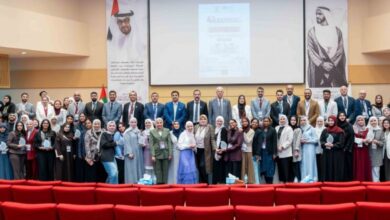Thammasat Lecturer develops environmental-friendly fertilizer pellet production technology

Assoc. Prof. Dr. Dusit Athinuwat, Department of Agricultural Technology, Faculty of Science and Technology, Thammasat University received a grant from the National Research Council of Thailand (NRCT), Ministry of Higher Education, Science, Research and Innovation (MHESI) for research and development on the production of microorganism-infused manure pellets for rice stubble and straw in rice field decomposition to reduce the burning of rice straw and rice stubble in the farmer community. Later, continued to receive funding in conveying the production technology and the use of manure to farmers. The project was completed in early 2022 by operating in 10 provinces under cooperation with Internal Security Operations Command (ISOC) in 6 northeastern provinces, namely; Udon Thani, Roi Et, Buriram (2 areas), Nakhon Ratchasima, Khon Kaen, Amnat Charoen and the central region, namely; Kanchanaburi and Nakhon Nayok, the eastern Department of Agricultural Technology, Faculty of Science and Technology, Thammasat University region in Chonburi Province. In every area, there will be pilot plots of 5 rai for operation demonstration and training to educate farmers on microorganisms’ production, expansion and preservation and the production of manure pellets to ensure that the farmers are able to start the production by themselves.
Assoc. Prof. Dr. Dusit Athinuwat, Department of Agricultural Technology, Faculty of Science and Technology, Thammasat University revealed that it provided a household-sized fertilizer pelletizing machine to farmers, one per group, as a model for fertilizer production for the community until the results are extended in every area of 200 rai per area. As for the use of fertilizer pellets, after harvesting, the efficient microorganism-infused manure pellets for rice stubble and straw in rice field decomposition was sown at the rate of 100 kg/rai and then plowed over the rice stubble and straw and leave it for 14 days. During planting, when the rice produces grains, farmers then to inject the fermented water of the project with selected strains of microorganisms to increase the weight of the ear of rice. Most importantly, during the preparation of the planting area, no rice stubble is burned. Comparing to traditional cultivation methods, the use of microorganism-infused manure pellets provides beneficial results as follows:
- 1. Reduce environmental problems and PM 2.5 dust problems caused by burning stubble after the harvest season by about 50 percent.
- 2. The soil condition is more crumbly. This allows the rice roots to seek food better. Usually after harvesting, farmers would leave rice straw and rice stubble to dry in their fields for about 4-5 months, so the soil becomes dry and hard. Until the new planting season arrives, they began to plow and burn the rice straw and rice stubble to prepare the fields for planting. The project is grounded to providing advice on plowing shortly after harvesting and while the soil is still moist, the soil is looser than the farmer’s existing method applied.
- 3. The average rice yield increased by 26 percent/ rai according to the experiment in the Pathum Thani 1 rice plot in Ayutthaya province which can increase rice yield from 600 kg/rai to 760 kg/rai.
- 4. Reduce the use of fertilizer by about 800-1,200 baht/rai because throughout the planting season, there is fertilizer from rice straw and rice stubble. Farmers therefore does not require additional fertilizers.
- 5. As a result of reducing costs and increasing yields, farmers earn about 18% more income.
- 6. Farmers obtain additional income from the production and sale of microorganism-infused manure pellets for rice stubble and straw in rice field decomposition. As far as we know, there are groups of farmers trained in Udon Thani province who are interested in producing microorganism-infused manure pellets for sale as supplementary income.
For future guidelines, there should be extension and campaigning for the use of microorganism-infused manure pellets for rice stubble and straw in rice field decomposition to reduce production costs, increase income for farmers and encourage farmers to produce fertilizer for using in the community. As part of the project, about 400 farmers have been trained and all have the capacity to become role models for training and extending this knowledge to other farmers.




